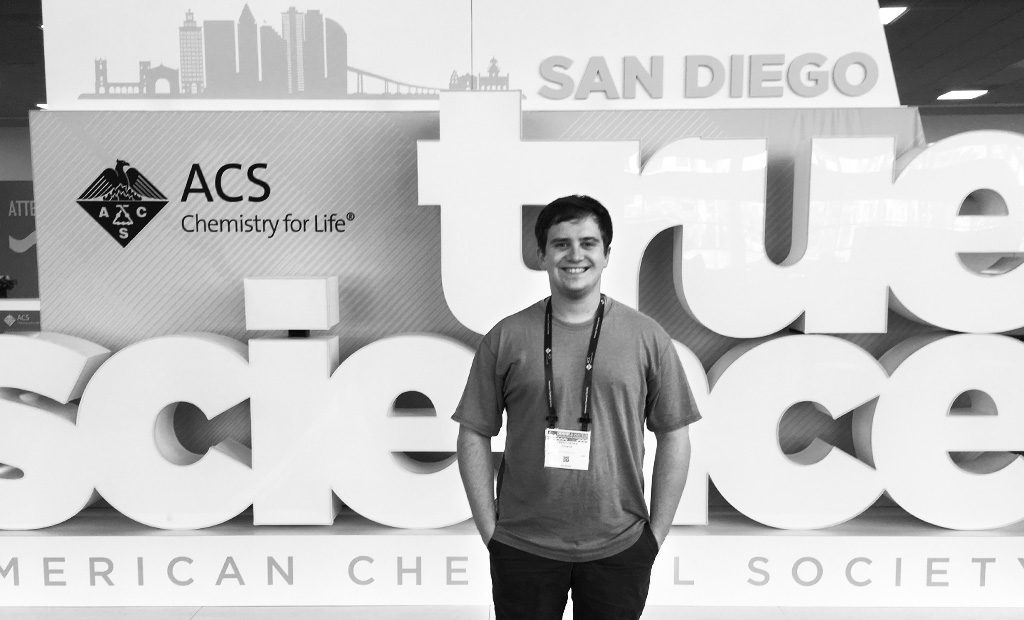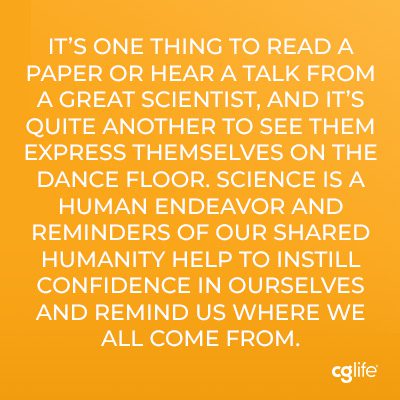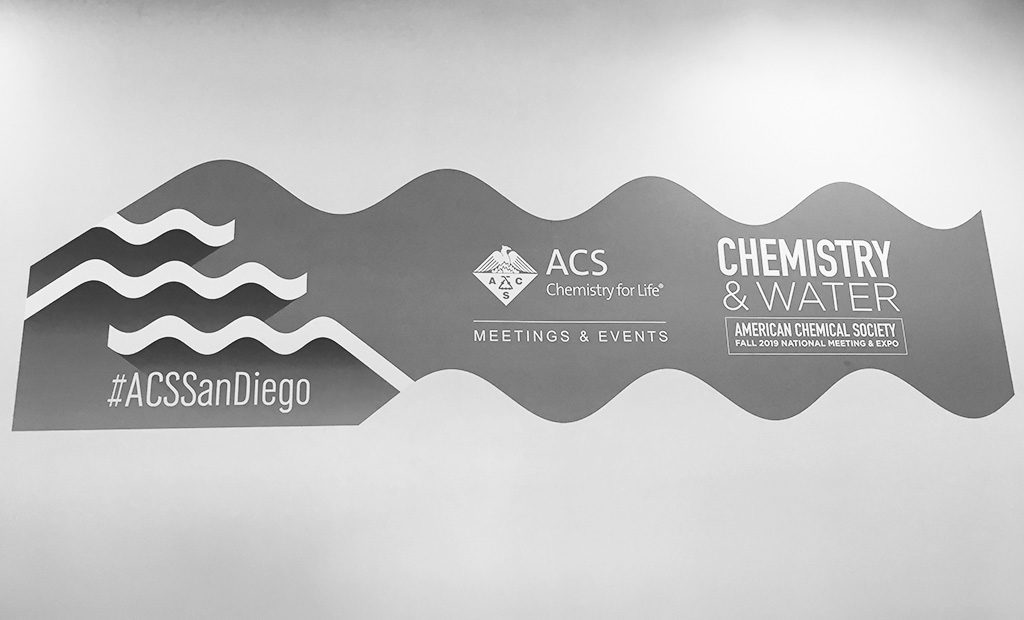

Scientific Conference Tips: Maximizing Your Impact as a Scientist & Person
I recently attended the 2019 ACS national meeting in San Diego with the added luxury of not needing to present. Instead of stressing over figure/slide arrangement or researching small details that I may get asked about (read: never got asked about), I spent some time reflecting. Specifically, I started to remember some of my favorite scientific conference moments… and some that still make me cringe.
While there is a lot of good information available to help you prepare, a lot of it speaks to explicit planning steps (preparing your talk, printing business cards, selecting talks to attend) or networking boxes you that should apparently check (breaking the ice, follow-up emails etc.). There’s a glaring gap in the middle: How can you maximize the rest of your time – the majority of your time? Are there actions you can take to feed your brain while also leaving a good impression as a human being (some scientists do struggle on this point).
Below I describe general behaviors to add to (or remove from) your conference repertoire to help establish an impact among the crowd. Hit us up on LinkedIn or Twitter if you have other tips to add.
Ask questions (and stop worrying that they are dumb).
One of my favorite aspects of humanity is this great equalizer – everyone on this planet has the capacity to be “dumb,” Ph.D. or not.
Put a nicer way, no one can be an expert on everything or understand every nuance they confront. If you are attending a poster session or lecture series, you are in the company of field experts that want to pass on information. As such, you should take the opportunity to unchain yourself from the self-doubt mantra, “I don’t want to sound stupid.”
Personally, I think the best way to do this is to practice asking public questions. As you listen to talks, take note of difficult concepts or interesting thoughts that pop into your head. As the talk winds down, try to formulate your idea into a question (I find writing it down helps). Once you ask your question, don’t panic if the speaker needs clarification. We all think in different ways, so your question may require some re-framing. This is normal! If you’re still stuck, try to catch up with the speaker later. Since you asked a question, they are more likely to remember you. You were the brave soul who risked it all to ask a burning question.
The other added benefit of speaking up is that you’re probably not be the only person with that question on their mind. As a result, you may find people come up to you at intermissions to thank you for your question or to discuss their perspective. This is another chance to make a human connection and establish contact with smart and like-minded people.
Leave the conference, explore, and enjoy!
Conferences are an opportunity to advance and broaden your understanding of a topic, meet new people, and garner fresh perspectives. While the event itself is at the heart of this, don’t ignore your local surroundings. Travel is good for you, but its hard to truly embrace a new place when you’re stuck in a typical windowless convention center. Go explore the location and give yourself space to think. Take walks, have local food, see the sights, and blend in by taking your nerd badge off. If the conference is local, like ACS San Diego was for me, be the travel guide! Suggest fun places to visit and lead the charge for people you’ve met who want to explore.
Some scientific conferences, like Gordon Research Conferences, purposefully plan meetings in remote locations to encourage peer communication. However, they almost always have outside events, so make sure to attend those. Finally, if you can extend the trip, do so. How often do you get to be in a whole new place? Try to soak it in.
Don’t be a competitive ass.
I cannot stress this point enough. I strongly hold the belief that science should be a collaborative endeavor. Of course, in the “good ol’ days” many scientists didn’t have the luxury of a blossoming interconnected field, so they plugged away as best as they could alone. Unfortunately, funding and public attention were so scarce that scientists sometimes fiercely competed for idea primacy rather than pursuit knowledge together (look no further than the Bone Wars for some appalling hyper-competition).
Resources can still be hard to come by, but not to that extent. In today’s world, science and technology have exploded to enable better connectivity, communication, and idea development. In this vein, conferences are a time to meet someone that shares your interests, so embrace that opportunity to discuss ideas. Of course, no one wants their ideas “taken,” but none of us work in a vacuum. If you can add value to that idea, weigh in. That said, our desire to make an impact can push us to be hypercompetitive with our ideas, and those old habits are hard to break. If you try to measure yourself against fellow conference-goers or offer unconstructive criticism, you won’t end up on top.
If you don’t rein in your competitiveness at the conference, you might just show your own insecurities, simultaneously closing potential doors of productive collaboration.
Liquid courage is a powerful double-edged sword (wield with caution).


Scientists traveling to conferences often want a chance to let loose and de-stress from their busy schedules/lives. I am all for this – everyone needs a chance to check-out for a while. Pro tip: Alcohol can be a great tool for this. Not everyone can always “turn off” work mode, so a little ethanol can lubricate the process, allowing you to lower your guard and return to “ground state.” When your mind and body are exhausted from intense focus and overcoming social anxiety, it can be particularly difficult to reset the system effectively. Of course, alcohol is not the only way to accomplish this, but we have been drinking ethanol for ~9,000 years, and it’s a part of our collective culture for a reason. I will never forget the conferences where I had the opportunity to drink, be merry, and even dance (badly) with my friends, colleagues, and scientific heroes. It’s one thing to read a paper or hear a talk from a great scientist, and it’s quite another to see them express themselves on the dance floor. Science is a human endeavor and reminders of our shared humanity help to instill confidence in ourselves and remind us where we all come from.
However, we can get ourselves into trouble when we rely too heavily on chemicals (THC can be included here as well) or lack self-control. Let me be clear, it’s okay to be drunk sometimes, and its even okay to be drunk with conference goers…but that depends entirely on how you handle yourself. If you’re unsure, I suggest practicing caution rather than take another swig right away.
As an example…
To help illustrate this, I’ll use myself and a close friend as a humorous but useful example. One conference we attended together had an open bar, which we, as broke graduate students, took full advantage of. After a while, we were both headed for a tough morning the following day. Then, the organizers brought out a lovely dessert spread including warm, crispy churros with frosting dip: a game changer. We beelined towards the table to enjoy the offering, but this was somewhat a messy process given the nature of the desserts and…well…the alcohol. My friend took a bit longer than I to load up, and eventually our advisor came over with a well-known professor to introduce him. My friend shook the professor’s hand, without giving the frosting on his hand a second thought. You can image, my friend’s horror, when they both realized how sticky the shake was.
This example demonstrates that with too much alcohol we are not our sharpest, and that dullness can lead to the wrong kinds of memories and impressions.
Keep yourself engaged.
While going to scientific conferences often represents a task you must perform as part of your work, professional development, advertising your product, and/or making new contacts, it should also be an opportunity for you to share your knowledge and learn about topics that interest you. Long conference days can be exhausting but do your best to stay energized and engaged. A positive attitude, attentive listening, and genuine interest are the backbone of a stellar conversation. Self-representation may appear to lack tangible action on your end, but I assure you that there are steps you can take to make yourself “brighter” in each room. Below I have bulleted some tips I found that help me stay active throughout the day.
- Plan breaks into your day to help stave off mental exhaustion.
- Attend a mixture of event types (social events, poster sessions, talks, expos, career dev.) to break monotony.
- Attend talks outside your wheelhouse but within your interests to diversify the content you hear.
- Attend poster sessions! I love poster sessions because they are a chance to directly interact with people whose work you value in a low-pressure environment. Plus, you can also ask about other interests and about life at their institution/location.
- Practice active listening. I find nodding during a talk when I hear something that I understand helps keep me focused. It also helps convey to the speaker that their message is good (they like this).
Don’t worry too much about people’s perception of you.
To end our discussion, I want to make it clear that while you want to represent yourself well, it is super important to trust you own process. Don’t sweat what other people are thinking. Of course, their perception of you matters, but to a large extent you can’t control it, so try to let it go. Sure, be self-aware enough to avoid being a jerk or being too drunk. Beyond that, do what comes naturally. Having self-confidence often leaves a positive impression on those around you. So, ask that question, talk to that person, skip a talk or two, and enjoy yourself however you can.


